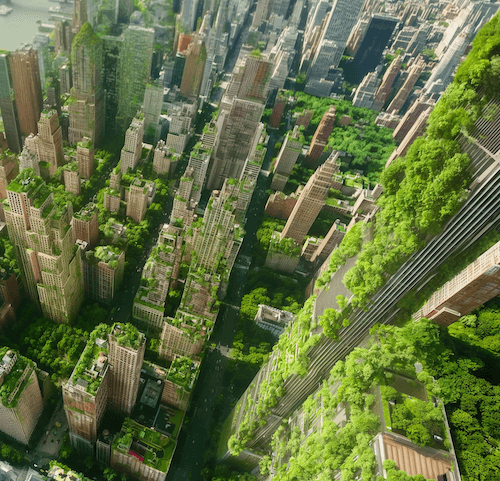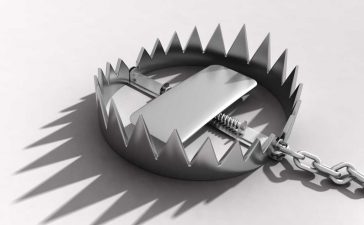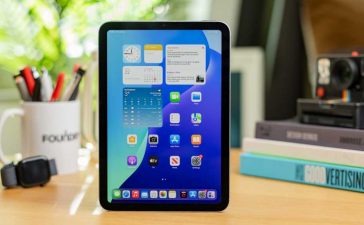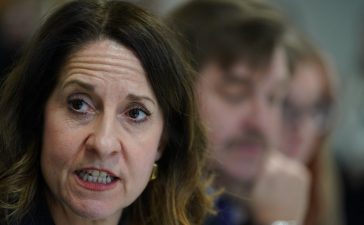
CEE student startup, FungiFix, was awarded the top prize at this year’s Das Family Innovate x LA Student Competition
At USC’s Sonny Astani Department of Civil and Environmental Engineering (CEE), students don’t only learn about the critical systemic issues that are impacting the sustainability of life on this planet. They also learn how to develop innovative ideas that directly address those issues – and how to transform those ideas into viable startups.
A culture of CEE entrepreneurship is being actively nurtured through mentorship, competitions and innovative coursework. Each year, the Das Family Innovate x LA Student Competition challenges students to pitch startup ideas focused on urban and environmental challenges. Teams compete for a $20,000 prize, and the real gain is the access to top founders and venture capitalists on the lookout for investment opportunities.
The competition is just the tip of the iceberg. The department has an overall emphasis on empowering entrepreneurially minded students to convert their classwork into applicable solutions.
“Fostering a culture of innovation fusing sustainability, design, engineering and entrepreneurship is a passion for us” said David Gerber, Professor of Practice at CEE and director of the department’s competitive master’s program in Advanced Design and Construction Technology. “Our students continue to impress us with their own passions and innovations, from living concrete to net zero remediation, all of which are solutions to the global challenges we face for the future of the planet.”
Gerber’s classes on building science and construction train students to think beyond conventional approaches to making the built environment more sustainable – moreover, there’s a growing trend among ecologically minded students to look to the natural world for solutions. From technologies to produce “living” self-healing concrete, to soil remediation strategies powered by mushrooms, these ventures reflect the priorities of the department’s strategic vision – in particular, the pillars of environmental stewardship and urban livability.
This emphasis on leveraging the inherent capabilities of the natural world is evident in the rise of three student-led startups. Their journeys from classroom concepts to fully-fledged ventures are still in the works, and the race is on to secure seed funding.

Das Family Student Competition winners, FungiFix.
This year, FungiFix took the top prize at the Das Family Competition. Recognizing that industrial activities are a major cause of land contamination, threatening water supplies and ecosystems, they developed a fungi-powered solution to soil contamination. The beauty of their solution is its dual application. Not only do the fungi absorb hazardous contaminants from polluted soils, they also generate sustainable building materials. This process begins with mushrooms breaking down and absorbing toxic substances, like petroleum, from the soil. The mushrooms are then ground up and transformed into concrete-blended bricks, safely locking in the harmful materials and preventing further environmental damage.
The concept for FungiFix was born from an early brainstorming session during the LA x Innovate Competition.FungiFix team member Brooke Robertson’s interest in mushrooms and carbon capture sparked a deep dive into mycology research, and the team worked together to develop the idea.
The team also credits their success to the guidance they received from mentors. When they reached the finalist stage, the FungiFix team began attending 2-hour lectures with mentor Brad Cracchiola.
“As engineers we know the science, but we don’t necessarily know how to learn the audience or present. Cracchiola walked us through the business concepts of everything and helped us create pitch decks and scripts,” said FungiFix team member Sophie Antevy. Kelly Sanders, who is currently serving as 2024 Assistant Director for Energy Systems Innovation at the White House, played a key role in motivating the team – her early encouragement was pivotal.
“I have a vivid memory of all us walking with her as she was on her way to teach her next class,” reflects Antevy. She stopped and said ‘I’m so proud of your team. I think you can make this big.’ She really believes in us, and none of us ever forgot that.”
BioFlare, another standout student startup, was also a finalist in this year’s LA x Innovate Competition. The team developed a kitchen device that converts organic food waste into gas for cooking. Users put fruits, vegetables and other scraps into a compact unit, add a proprietary bio-mix, and wait for it to break down the waste and transform it to bio-gas. The system filters the gas for purification, and supplies it directly to a stove or burner. The result? A sustainable, efficient and self-sufficient source of cooking fuel.
Targeting households in low-infrastructure areas, BioFlare’s goal is to helpcommunities manage waste and generate daily cooking fuel. While FungiFix won the grand prize for the LA x Innovate competition, BioFlare secured the $50,000 grand prize at the 2024 Min Family Challenge, their first taste of seed funding. “Winning the Min Family Challenge marks a pivotal milestone for our team,” says team member Jacqueline Franco. “These funds will breathe life into our vision, enabling us to finalize our prototype and manufacture a model that we can deploy and test with users.”
A third notable CEE startup is Plantaer – the team’s concept of “living concrete” has the potential to scale from sample product to urban infrastructure.

Digital mockup of Plantaer’s vision of “living concrete” transforming cities.
Traditional concrete production is a major contributor to global carbon emissions; Plantaer is experimenting with synthesizing biopolymers, waste products and living organisms to create a more sustainable but equally strong building material. Not only does their approach have a reduced carbon footprint by utilizing waste materials, it also enhances the strength and durability of the concrete through biological interactions.
“Concrete is the second most consumed material on Earth, right after water. By rethinking how we produce it, we’re addressing a massive environmental challenge,” explained Manuel Benitez Ruiz, co-founder of Plantaer. “During my three years at USC, I always saw the vibrant startup network around me. Many of my friends were participating in competitions and doing amazing work, which inspired me to engage.”
The common thread among these startups – harnessing biological processes to solve urban and environmental challenges – is indicative of a new wave of eco-awareness among USC engineers. The issues they’re tackling are not abstract problems at the level of the textbook – they’re part of lived experience, and the changing world that students will launch into once they graduate. Entrepreneurship is a way for them to apply their business acumen for a reward far greater than simple financial success. The stakes? The future of our shared planet, and the potential to steer industrial processes towards ever-greater sustainability.
Published on November 6th, 2024
Last updated on November 6th, 2024












